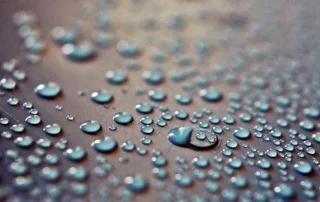Coaching and living in the paradigm of systematic correspondence part 2 by Simon Darnton
Credit: Nithya Ramanujam @sidengo.com/kaniths
This is a continuation of my story about finding a new way of coaching which unbeknownst to me drew me in to begin living in the paradigm of systematic correspondence...
In the first part of this story, we touched upon my realisations about the natural flow of things, their patterns of waxing and waning, their interconnectedness, and about what happened when I slowed down to notice what was going on around me.
I promised to continue with an exploration of how this applies to the human microcosm.
Making sense of systematic correspondence
In my first piece, I illustrated how 5-phase theory (Fire, Earth, Metal, Water, Wood) began to show up for me in the natural world. How the trees related to the earth, the sun to water and that there was a natural fluid order.
I could see all this going on around me. I think we have, as humans, an affinity with our natural surroundings that enables us to intuitively relate to it providing we open that particular door.
That's fine.
But what stumped me was how one might draw any meaningful correspondence between a piece of metal, or a pool of water, and the goings on within a human being, particularly since in coaching we're dealing with behaviour, exploring emotions, and feelings as well as many aspects of consciousness - of our coaching clients and ourselves as coaches.
I'd found some key texts that explained the 5-phases and their qualities relating to human functions in medical contexts and they provided me with some clear categorisations, but when I tried to fit them into a coherent picture in relation to my coaching, all it did was make my head hurt.
The process I was trying also made my coaching feel really clunky and mechanical which was the opposite of my experiences of acupuncture and Tai Chi Chuan. Something was wrong.
I carried on hitting my head against the wall using my time honoured strategy of reading the books harder, figuring something out in myself and in a coaching session and then reaching back into the books to see if what I had noticed fit with the manuals. It all felt so wrong and I was lost.
Luckily for me, I was having regular acupuncture treatment with an experienced acupuncturist and teacher of Chinese medicine as part of my rehabilitation.
There were also, I feel, some lucky coincidences.
During an acupuncture session, I spoke about my woes. My acupuncturist asked me whether I'd considered just going outside with one of the phases in mind. Given that we were in the middle of winter, he suggested it could be a good time to explore Water as within 5-phase theory it corresponds with winter. Simultaneously he asked whether, due to my prior-to-balance-disorder motorcycle racing hobby, I'd considered trying something like off-road cycling.
Very soon after this acupuncture session, I also had a review with my balance specialist who keenly suggested off-road cycling would be a good progression of my rehabilitation.
The seeds were sown. I got myself a mountain bike, some inadequate cycling clothes and went mountain biking.
Due to my own self-consciousness, I couldn't quite overcome a sense of superiority about playing with and in water myself. Here I was doing a serious piece of psychology research for a Master's degree and I'd regressed to simple sand and water play. But having a young son who was doing it all the time gave me the ideal excuse. Of course, I was just playing with him splashing in the water, not actually learning anything myself!
I wasn't aware enough of my own self to realise what was actually going on here, but it was something that was eventually to come out in the coaching feedback I started to receive from clients later on.
Parking my intellect
Silly as it may seem then, my attention became focussed on water. In a way I was lucky in that it was a dreadful winter. We had a number of periods of snow which thawed and soaked everything around us. I became acutely aware of the sensations of wet, cold spray covering me from head to toe when I went out on my mountain bike; how after a while I could feel this cold right into my bones. Awareness began to open up for me more in that I realised how I physically contracted when wet and cold too. I also noticed things like how water would find its way down a hill and that in many circumstances this would also be the best route for me to follow on the bike because it had been cleaned and cleared for me.
Observing, touching and feeling the qualities allowed me to slowly begin to develop better awareness of my experience of water and winter. I was beginning to get a feel for water and its real world dynamic qualities as well as my relationship with these movements.
But I suppose what you may be wondering is how this is relevant to the human microcosm and especially coaching? I was too and I will get to that shortly.
What was most fascinating for me was that I had opened the door to a new world of sensory experience. In this new space of experience I found that to get into it I had to park my intellect.
Curiously, I found myself feeling fearful of where I was and where I was going. Lost at sea. Yet despite this fear I also began to find the process rather liberating and my head certainly hurt a lot less.
The big realisation for me here, that I didn't actually realise but my clients did and told me through their experience, was that to get a sense of these movements and qualities, I had to get out of my head and somehow they found themselves there too.
It was a bit like jumping on a wave just go with it and feel it as opposed to thinking about the wave and its qualities. In this space, it becomes very hard to explicate those sensory qualities rationally and linguistically. It also puts me in a more difficult space because the qualities of experience can be incoherent and contradictory yet the experience itself as a whole is complete, meaningful and whole which in its own sense is completely coherent.
Whilst I researched the use of 5-phase theory and its correspondences for my Master's research project, the most important thing I realised in this was about just observing to feel the correspondences of patterns within myself, those I was coaching and the coaching space. Only once I had a complete experience of those patterns could I begin to make sense of them as a whole.
And even more importantly, these experiences are personal so it becomes an entirely subjective view. Someone else observing may pick up on entirely different apparent patterns, and that's absolutely fine too.
What does this process actually look like?
Finding patterns
For me it was to almost sit back and invite patterns to show themselves to me. Not to be closed down to look for patterns in just one human domain such as emotions, or thinking, but at every level of existence. I would be open to the physical manifestations like complexion, tightness, looseness or stiffness (and where); the quality of their eyes; how they moved; how they spoke; the emotions they experience; clarity and quality of mind; the feelings they were experiencing. This would extend to those wonderful descriptions, like one client telling me she felt like her head was in a fog and it made her feel cold; everything that came into my consciousness became part of the picture.
This may sound overwhelming and at first it was for me, yet when I opened up to the process and digested it, I found it to be incredibly liberating because it gave me so much more freedom somehow. What I learned here about this way of thinking, approaching work with a human being and what was so freeing was explained so much better than I could by someone else in regard to Chinese medicine:
"The physician, then, was free to choose among all these different patterns which were only indirectly compatible with one another in that all of them were based on the concepts of systematic correspondence. The individual patterns could not, in most cases, be reconciled with one another; some even appear to exclude others. But the “either/or” question that might be posed by a scientist used to deductive reasoning obviously did not concern a Chinese theoretician or practitioner who thought in terms of systematic correspondence. It cannot be stressed enough that this phenomenon is one of the basic characteristics distinguishing Chinese thought from modern Western science, and it is in this context that one should regard all those attempts as questionable and misleading that try to eliminate this distinctive feature of traditional Chinese thought by artificially isolating coherent and – in the Western sense – consistent set of ideas and patterns from ancient Chinese sources.‟ (Unschuld, P. U. (1985). Medicine in China: A History of Ideas. Berkeley: University of California Press, p. 91)
I had fallen into this trap, and it was natural for me to do so, given where I was coming from. So I needed to find my own way that was consistent with Chinese thinking.
To be continued...
To connect with Simon Darnton
Simon Darnton works with leaders, entrepreneurs and executives who want to explore important questions, develop themselves or their organisations, and improve performance. He draws on a unique blend of business, psychology, and extreme sports experience, working in collaboration with clients to effectively navigate their personal and professional challenges. He holds an MA in Psychological Coaching. He also teaches Tai Chi Chuan.
www.simondarnton.com
info@simondarnton.com
+44 (0)7970 022 627












